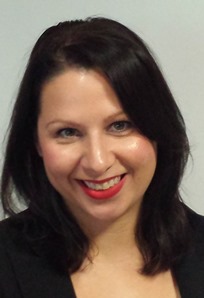Why did you decide to become an in-house lawyer? There were a number of aspects of private practice that did not align with my personal values, including the lack of female partners and the focus on numbers rather than relationships or outcomes. But I almost didn’t become an in-house counsel because of my first in-house interview. I had an ICT/IP background and the role I applied for was a regulatory lawyer. I got a caning in the interview and walked away thinking the role just wasn’t for me. The GC agreed and she called to say I didn’t get the job, but that she created a new technology lawyer position for me that was perfectly suited to my areas of specialisation. I left private practice and never looked back.
How would you describe lawyers in three words? Focussed, erudite, strategic
Do you ever miss working in private practice? Not from a technical or professional perspective, but being in a not-for-profit now I do sometimes wish we had access to some of the resources available to our private practice colleagues!
What do you think is the biggest challenge for in-house lawyers today? The days of in-house being the easy option are well and truly over. In-house counsel are increasingly being asked to do more with less, which means they are wearing multiple hats, trying to ensure their own well-being in times of incredible stress all the while trying to measure and demonstrate the value of the legal team to ensure no further resources are lost.
What is the one thing law firms could do to improve the services and advisory they provide? ACLA has initiated a series of workshops that bring senior GCs and senior law firm partners together to collectively discuss how to maximise the value of legal services for mutual benefit. At the top of the list is a strong relationship – this involves open and constant communication (including defining what’s important in a particular transaction) and an understanding of a client’s business. A phone call can go a long way – for example a call to let in-house counsel know about emerging legal developments which may impact their business shows the firm understands the client’s business and is invested in helping the client manage the consequences.
What is one thing that people might not fully understand about in-house lawyers? That they are much more than just a lawyer! In-house counsel are also seen as business partners and trusted advisors to the organisation, involved in the strategic planning and often part of the executive team. This means that not all lawyers can successfully transition to in-house; you must be a problem solver and require a mix of commercial acumen, soft skills and legal knowledge. You must be able to help the business grow, while ensuring this is done in a legal and ethical way.
What do you love about your role at ACLA? ACLA is like the centre of the in-house universe. Before joining ACLA, I had been an in-house counsel for over 10 years, but it’s easy for in-house to become inwardly focussed and disconnected from the broader professions. Being at ACLA has reignited my passion for the value and standing of the in-house profession because I now have a great helicopter view and appreciation of the broad range of issues and challenges in-house counsel successfully manage, and get to meet the truly inspiring in-house counsel who are our members.
What is the best advice you have ever received? “In vino veritas”. I confess that’s probably the only Latin I know these days!
Complete this sentence. “If I wasn’t a lawyer, I would be…” Heading up an ethical cosmetics empire which was a significant benefactor to a wide range of animal rescue organisations and other organisations which give a voice to those who have none.


